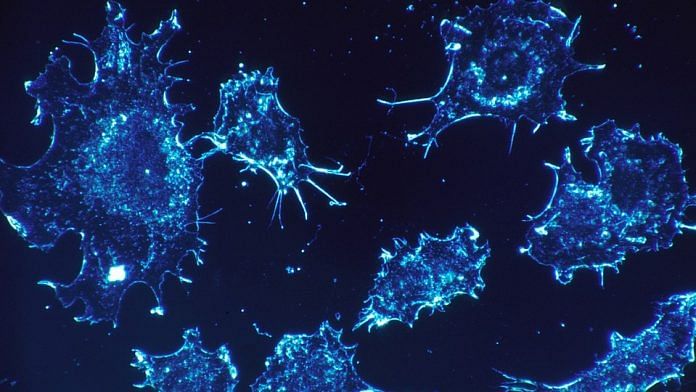More than 600,000 Americans are expected to die this year from cancer. That doesn’t slow down for the coronavirus. The good news is that scientists are still working on improving our odds by finding new ways to expand the scope and accuracy of early testing. And they recently had a promising breakthrough.
Cancers are much easier to treat if they can be caught before they spread. And yet aggressive screening can have downsides: Recent data show that mammograms and prostate cancer screenings have led people to have unnecessary surgeries and other invasive procedures for cancers that were unlikely to harm them. Such tests can mislead us about our risks.
But more knowledge is power, and a new blood test has shown the power to detect multiple cancers — including ovarian and uterine cancer, for which there are no existing screening tests and usually no symptoms until it’s far too late for treatments to be effective.
Researchers at Johns Hopkins University studied a group of 10,000 women between ages 65 and 75 with no history of cancer. In 26 of them, the blood test combined with full-body imaging revealed malignant tumors.
The results, published in Science, were impressive. The 26 women with detected tumors got early treatments for cancer. All are still alive, and most are in remission. On their own, the blood tests generated 101 false positives, but none of those women were mistakenly treated for cancer. Some had unnecessary follow-up tests, such as endoscopies, but none underwent surgeries.
Bert Vogelstein, who was one of the authors of the study and has spent years working on early cancer detection, said the test relies on the fact that most cancers have at least one of 16 telltale genetic mutations. When cancer cells die, they leave behind this abnormal DNA in a person’s blood stream, even very early in the course of a disease. The blood tests can find it.
The idea behind the blood test, he told me, is that positive results will be followed up by a full body PET scan, which can confirm whether there’s a tumor and locate it. Such scanning would be expensive and cumbersome to do on everyone, but becomes much more manageable if deployed for the 1% of patients with a positive blood test.
The test detected a number of ovarian cancers, several lung cancers, and a uterine cancer. There was also a case of colorectal cancer and breast cancer that hadn’t been picked up by standard screening — though he said not everyone in the study had followed screening advisories.
He said the test isn’t meant to be a substitute for the screening tests that can pick up those cancers, but a way to get at the other cancers for which there is no early detection method, and which often kill people because they are discovered after they’ve spread too far to be effectively treated.
In a previous study, he and colleagues at Johns Hopkins used a blood test on a set of confirmed pancreatic cancer patients and a control group with no known health problems. The test yielded a positive result for most of the cancer cases, and only one of the people in the control group. Whether it was a false positive or an undetected cancer remained unknown.
This new study was the first of its kind done on subjects believed to be entirely healthy, and in which subjects were told their results so they could seek treatment. The false positives were presumed to be cancer free if no tumors were detected in the imaging, but only time will tell. The test is not ready for standard practice quite yet, but the promising results will lead to more studies to better understand who would benefit from such tests and how to best interpret the results. –Bloomberg
Also read: One in every 15 Indians will die of cancer, says WHO report



